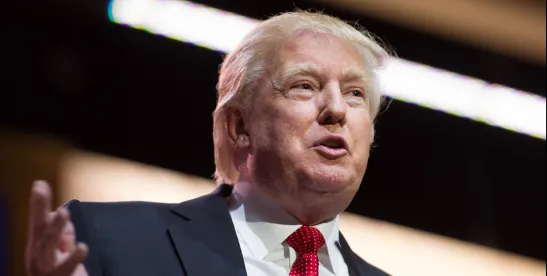The second Trump administration has moved quickly to implement its campaign promises on immigration, issuing a series of executive orders aimed at tightening border security, curbing illegal immigration, and enhancing interior enforcement. Florida Gov. Ron DeSantis has announced complementary legislative proposals for his state, positioning Florida as a key player in supporting these federal efforts.
Highlights of the New Executive Orders
- National Emergency Declaration at the Southern Border
President Trump declared a national emergency to mobilize the U.S. military, expedite border wall construction, and bolster surveillance through drones and advanced technology. This measure aims to deter illegal crossings and improve border integrity.
- Designation of Drug Cartels as Foreign Terrorist Organizations
The administration has classified drug cartels as “foreign terrorist organizations.” This designation will facilitate more robust measures against their operations and may influence broader immigration enforcement actions.
- End of Humanitarian Parole Programs
The administration continues to affirm plans to terminate programs that had provided legal pathways for migrants from countries like Cuba, Haiti, Nicaragua, and Venezuela, as well as similar programs for Afghans, Ukrainians, and other groups. This signals a shift away from temporary humanitarian admissions and toward stricter immigration controls.
- Changes to Asylum and Refugee Policies
The executive orders aim to end “catch and release” practices and significantly restrict asylum rights, reducing the ability of migrants to seek protection upon arrival. These measures may face legal challenges claiming they are inconsistent with existing U.S. and international law.
Additionally, the administration intends to suspend the refugee resettlement program for four months. The refugee resettlement program has, for several decades, allowed hundreds of thousands of people fleeing war and persecution to come to the United States. President Trump similarly suspended the refugee program at the beginning of his first term, and, after reinstating it, significantly reduced the number of refugees admitted annually.
- Enhanced Interior Enforcement
Key actions include reinstating the “Remain in Mexico” policy, expanding the 287(g) program—which deputizes state and local officials as federal immigration enforcement agents—and issuing financial penalties to sanctuary cities that do not cooperate with federal immigration authorities. Both actions reflect the Trump administration’s campaign promise to crack down on illegal immigration and carry out mass deportations.
- End Birthright Citizenship
One of the key announcements is the effort to end birthright citizenship—one of President Trump’s most ambitious immigration efforts. Birthright citizenship ensures that anyone born in the United States automatically becomes an American citizen. Trump’s effort to end it is expected to face legal challenges.
- Reaffirming the 2017 ‘Buy American and Hire American’ Executive Order in the America First Trade Policy
During the first Trump Administration the government was directed to focus on ensuring that policies favored domestic workers. This has ramifications in business immigration policy and workplace enforcement.
Florida’s Role in Supporting Federal Immigration Goals
Gov. DeSantis has proposed legislation designed to align Florida’s state policies with the Trump administration’s federal immigration priorities. These include:
- Maximum Participation in the 287(g) Program: Florida will mandate compliance from local officials, imposing penalties for non-compliance.
- State Crime for Illegal Entry: The legislation creates a state offense for illegal entry, coupled with a self-deportation mechanism.
- Unauthorized Alien Transport Program (UATP): Expansion of this program will facilitate the detention and deportation of unauthorized individuals.
- Repeal of In-State Tuition for Undocumented Students: This move underscores a stricter approach to benefits extended to unauthorized residents.
- Voter Registration Reforms: Measures will ensure identity verification and impose severe penalties for voter fraud.
- Restrictions on Financial Transfers: New rules will require identity verification for foreign remittance transfers, aiming to reduce potential misuse.
Implications and Challenges
These sweeping changes represent a hardline stance on immigration and signal a shift toward aggressive enforcement measures. However, these policies are expected to face legal and logistical challenges:
- Legal Challenges: Immigration and civil rights organizations are likely to challenge the restrictions on asylum, the national emergency declaration, and other measures.
- Operational Coordination: Effective implementation of expanded 287(g) programs and deportation initiatives will require coordination between federal, state, and local agencies.




 />i
/>i
